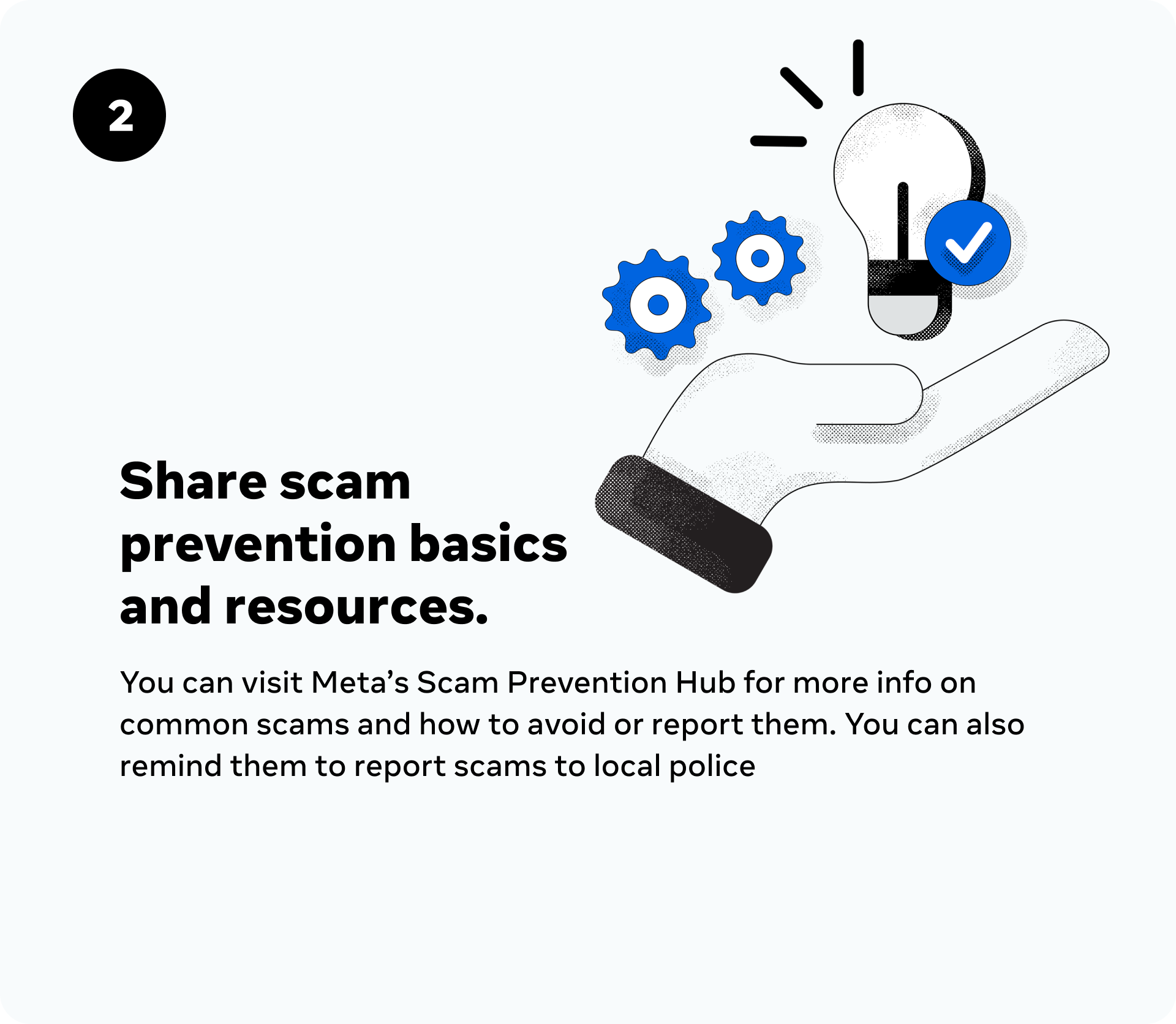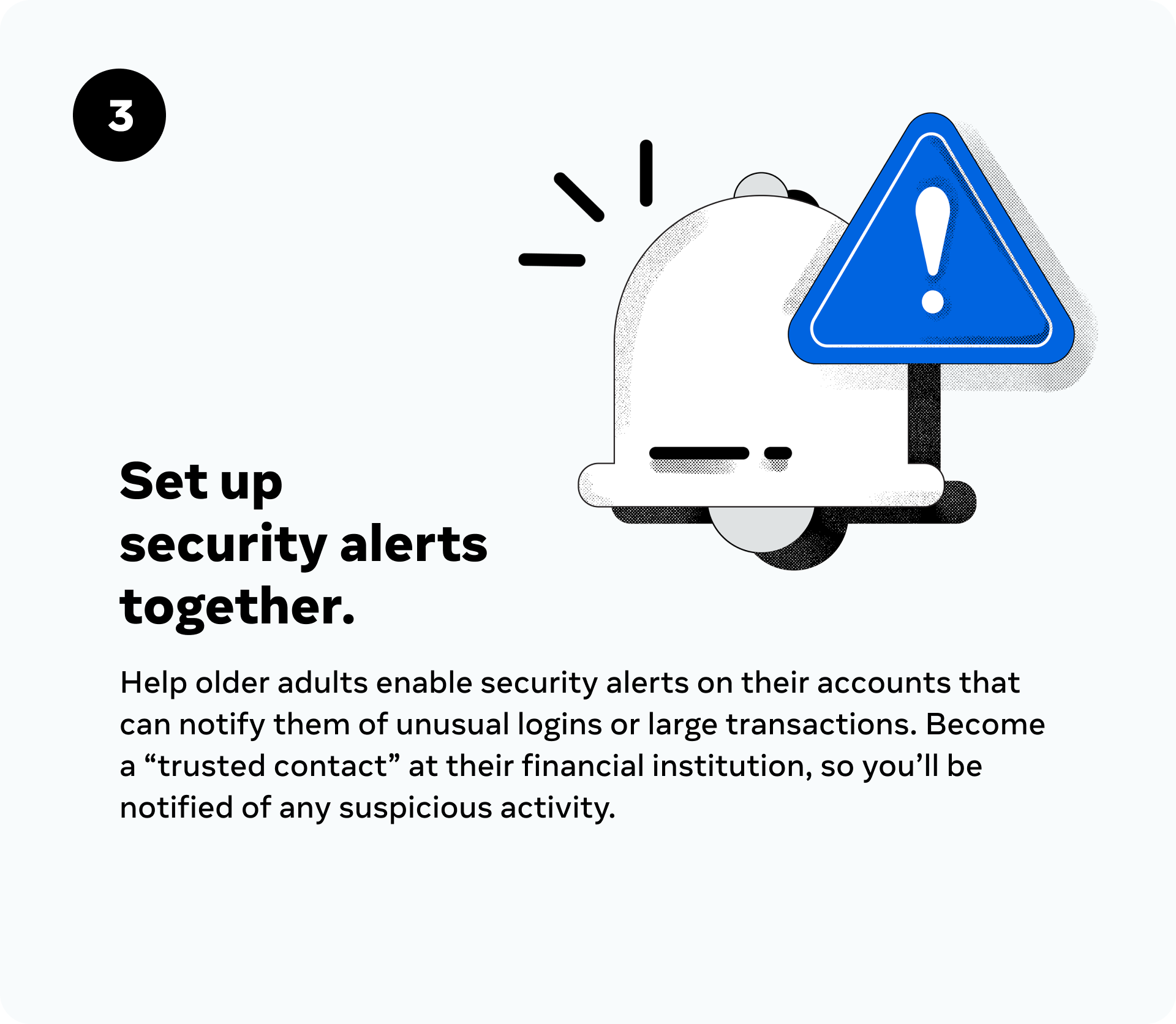

































Meta shares 6 proven tips to keep older adults safe online
 8
8
 WHEN
WHEN
 READ
READ
 META
META
Meta has released new tips and tools to help older adults identify and avoid online scams as part of its ongoing global anti-scam awareness campaign. The company said the effort focuses on raising awareness about how criminals target people through social media, messaging apps, and other digital platforms.
Since 2025, Meta has detected and removed almost 8 million fake accounts on Facebook and Instagram connected to global scam centres. These groups frequently target vulnerable users, such as older adults, through messaging apps, dating sites, cryptocurrency schemes, and other online platforms.
Scammers often target older adults due to their trust and unfamiliarity with digital tools. Meta is expanding efforts to combat this by removing malicious accounts and educating users, according to Kojo Boakye, VP of Public Policy for Africa, the Middle East, and Türkiye.
“The fight against scams and fraud is a relentless one, and we are continually evolving our defences to stay ahead of bad actors,” Boakye said. “This is part of our commitment to protect our users by empowering them with the tools and knowledge they need to recognise and avoid sophisticated threats.”

The initiative highlights how online fraud continues to evolve globally, with scammers adapting their methods across platforms. Consequently, Meta believes awareness and simple security habits remain key to protecting users.
How older adults and families can stay safe online
Meta outlined several practical steps older adults can take to protect themselves.
1. Be cautious with unknown messages or calls.
Avoid responding to unsolicited calls, texts, or emails, especially those asking for personal or financial information. Scammers often pretend to be from legitimate companies to gain trust.
2. Don’t rush — pause and verify.
Fraudsters create panic or urgency to pressure people into quick action. Take a moment to think, and always confirm with a trusted friend or family member before responding.
3. Use only official support channels.
When you need help, contact companies directly through verified websites or hotlines. Never click links from messages or emails claiming to offer support.
4. Talk openly about scams.
Families should regularly discuss common scam tactics and remind older relatives that anyone can be targeted. Open communication helps prevent mistakes.
5. Visit Meta’s Scam Prevention Hub.
The Hub provides clear resources on identifying scams, reporting them, and learning new ways to stay protected online.
6. Set up account security alerts.
Families can enable security notifications together to detect unusual logins or large transactions early. You can also become a “trusted contact” at your loved one’s bank to receive alerts on suspicious activity.
Read also: Meta rolls out new scam alert features to protect older users on WhatsApp and Messenger
These simple steps, Meta says, can help families build stronger defenses and make it harder for scammers to exploit older users.

New Meta tools make scam detection easier across apps
Beyond advice, Meta has introduced several new features across its platforms to help users detect scams faster.
A new WhatsApp screen-sharing warning alerts users when they attempt to share their screen with unknown contacts during video calls, helping to prevent scams that trick users into revealing private details or banking information.
Meta has also introduced Passkeys across Facebook, Messenger, and WhatsApp. With this feature, users can log in securely using their phone’s fingerprint, face ID, or PIN instead of passwords, reducing the risk of stolen credentials.
The company has updated its security checkup tool on Facebook and Instagram, allowing users to review login locations, reset passwords, and enable two-factor authentication. WhatsApp’s privacy checkup now gives users more control over group invitations and visibility settings.
As part of Meta’s ongoing security efforts, safety tools are being simplified and made more accessible. Meta continues to collaborate with partners and authorities globally to combat online fraud and inform users.

Meta’s latest move underscores how quickly scammers are adapting and how much responsibility tech platforms now carry in user protection. The company believes education and preventive tools are just as critical as security systems in addressing online threats.
As scams grow more complex, awareness remains one of the strongest defences. For older adults, simple steps like verifying messages, enabling security alerts, and using Meta’s built-in safety features can make all the difference in staying secure online.

